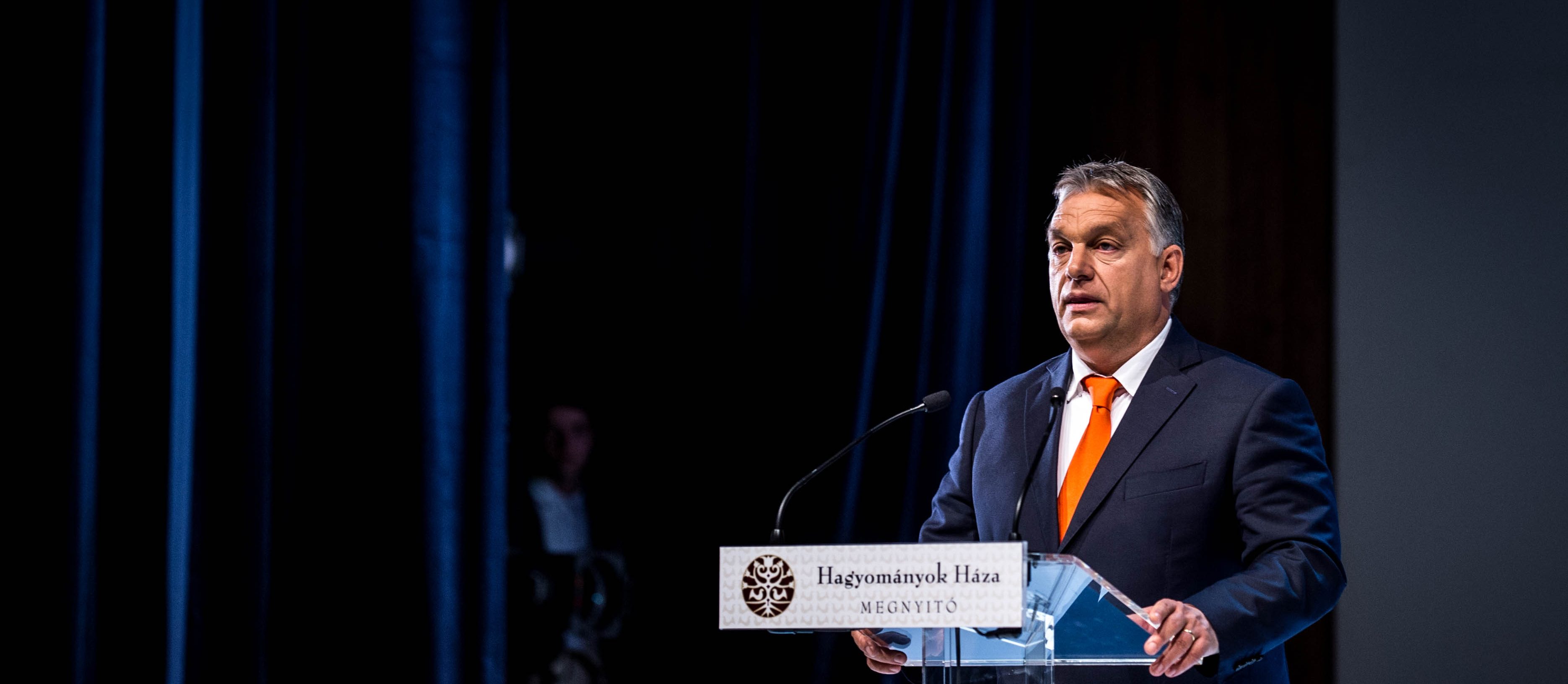
The Prime Minister said that “I sometimes hear that a culture war is being fought in Hungary. I suspect that jostling over certain positions and journalistic disputes between cultural philosophies are perhaps part of the normal order of modern-day life”. In his view, however, cultural peace reigns in Hungary: a consensus is forming that “we must build our future on families, work and reunification of the nation”.
He stressed that Europeans respect other cultures and their representatives, but “no one can impose on us the obligation for this respect to lead to the surrender of our own culture and submission to another culture”.
“In our own land – and this is true of both Europe and Hungary – we want to live by the rules and values of our own culture”, he declared, adding that if the historical and cultural foundations disappear and “if we allow the cultural bedrock to be replaced”, then Europe will collapse like a house of cards.

He added that the Hungarian people perceive this threat, and that therefore “we are standing up and declaring who we are, and what we think about God, country and family”, and what the Hungarian people think this means for life in Europe. In his view, “if we do not do this, we will fall victim to a creeping pan-European cultural surrender”.
Mr. Orbán added that a country’s future is not only determined by its economy, military capability and political influence, but also by its cultural achievements. Therefore every forint spent on culture, he stressed, is an investment in the future: in a Hungarian and Christian – and therefore European – future.
The Prime Minister said that deep, strong roots enable the Hungarian people to hold fast to their cultural heritage. “We Hungarians can stand here, one thousand one hundred years after our ancestors’ occupation of our homeland”, he said, “because we know where we came from, we know our debt to the generations preceding us, and indeed we know what we owe to those who will come after us”.
“Our culture shows us who we were and who we are”, the Prime Minister said, referring to “strength which forges the inhabitants of a country into a nation, and the members of a nation into a community”. He said that these must be the foundations for the national curriculum currently in preparation, and also the entire Hungarian school system.

He also asserted that Hungarians are proud of their civilisational achievements and culture, including their songs and dances, noting that “For us, Hungarian folk culture is not a collection of museum pieces, but a cohesive force.” This is why, he said, the National Theatre and the Palace of Arts had been built, and why the Music Academy, the Pest Vigadó, the Erkel Theatre, the National Riding School and Kossuth tér had been renovated. The Museum of Fine Arts and the Opera House are also being renovated, Mr. Orbán noted, a new Museum of Transport is being built, the Liget Budapest project is under way, and Buda’s Castle District is being regenerated.
Speaking about the House of Traditions, he said that the HUF 7.5 billion refurbishment of the Buda Vigadó building means that it can again function as one of the centres of Hungarian culture.
In conclusion Mr. Orbán said that in the homeland of Hungarians there has been great debate about what it is to be Hungarian. In his words, “a Hungarian is someone whose grandchildren will also be Hungarian”. Therefore, in his view, the mission of the House of Traditions is to “help us enable our grandchildren to also be Hungarian”.

László Kelemen, Director-General of the House of Traditions, said that over the past seventy years living folk traditions have been in continuous retreat. This, he said, is despite the fact that folk traditions nourish and sustain us, enrich our view of the world and bind us together. He stressed that values and achievements must be given institutional form, and one expression of this was the foundation of the House of Traditions in 2001.
Mr. Kelemen said that the reconstruction of the Buda Vigadó means that the House of Traditions will have an appropriate environment within which to fulfil its mission.
From 4 to 7 October the House of Traditions will open the restored interiors of the Buda Vigadó to the public for dance performances, children’s events and exhibitions.
